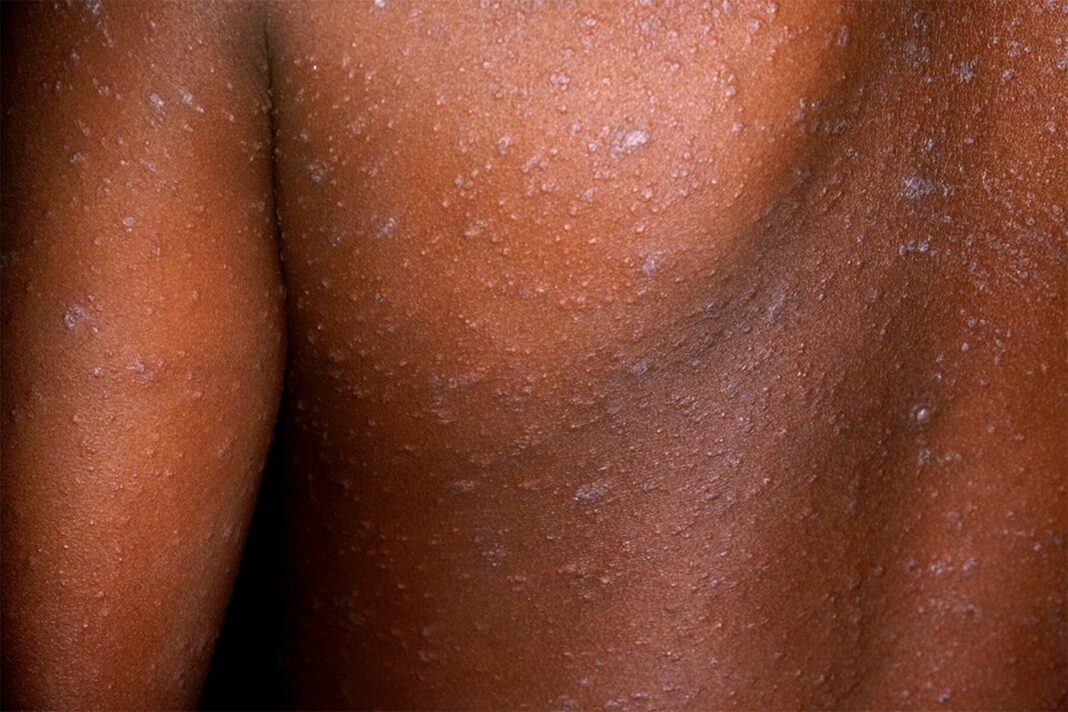By Mothusi Thabane
The ministry of health has launched a three-day measles vaccination campaign beginning this week after a six-year old girl of Ha Mokauli in Masite showed symptoms which were confirmed by the laboratory tests.
The Maseru district public health nurse, ‘Matumello Mokuku, said there is no outbreak in Lesotho, but because of the measles outbreaks in South Africa, especially in Bloemfontein and Botshabelo, the district health management team started monitoring and screening children in October last year.
“Following the outbreak in neighbouring South African towns, we launched an active case search for measles. That’s how we got hold of the girl’s case,” said Mokuku.
“During the active case search we looked for signs and symptoms of measles which are red eyes, sneezing, flu-like symptoms and tearing as well as runny noses. The children also develop a rash. The rash starts from the forehead, spreads down the face and to the chest.”
“So we embarked on a measles campaign where we vaccinated children from nine months to five years. We have vaccinated children in all villages around Ha Motauli. Children in all the primary schools and Masite were also injected,” she said.
Mokuku, who hailed the campaign as a success, said 354 children from Masite Primary School and Rothe Pre-school in Ha Mokauli and Ha Bereng were also vaccinated. On Wednesday, we vaccinated 620 children.
“We covered Almighty Pre-school, Rothe English Medium, OB Collins Primary School, Light of Life Preschool and Thuto ke Leseli English Medium. 520 children were vaccinated in these pre-schools in the St Barnabas Health Centre area.”
She added that there are no new cases, but there are measles suspects who had contact with the six year-old girl.
“They had contact with the girl, either by living in the same house with her or by playing with her and now show signs and symptoms of measles,” she said.
“Blood samples have been taken to South Africa and we are still waiting for laboratory results.”
Mokuku said there is no specific treatment for a measles infection.
“We give symptomatic treatment for fever, red eyes and flu-like symptoms. We also advise parents to isolate infected children in order to prevent the spread of the virus until the signs and symptoms have cleared. Infected children should also be isolated for consecutive seven days.”
“Measles vaccine is very effective and mothers should take their children for vaccination atnine months of birth months and repeat the vaccination when the children are 18 months old,” she said.
The immunization comes amid growing fears that Lesotho could eventually experience measles and rubella outbreaks if the current trend of reluctance to vaccinate against these diseases persists.
And with Lesotho’s ailing health system already strained, an outbreak of these communicable diseases would cause mayhem as the country would struggle to effectively cope with the financial burden of the pandemic.
The ministry of health made this warning on the back of an observed decline in people taking vaccines against measles and rubella, and amid an ongoing nationwide immunization campaign specifically targeting children aged between 0 and 59 months.
The decline is not unique to Lesotho. According to the United Nations Children’s Fund (Unicef) Global vaccination has continued to decline in 2021 with 25 million children missing out on lifesaving vaccines, two million more than in 2020, and six million more than in 2019.
According to Unicef, that many factors contributed to the observed decline, including an increased number of children living in conflict and fragile settings, increased misinformation, and COVID-19 related issues such as service and supply chain disruptions, resource diversion to response efforts, and containment measures that limited immunization service access and availability.
As recently as November 2022, the ministry’s family health director, Dr ‘Makhoase Ranyali said the level of vaccination in Lesotho dropped sharply after the 2017 measles and rubella immunization campaign which saw parents accusing the vaccine of harmful side effects.
“We received reports of four deaths and hundreds of children who had fallen ill after receiving the vaccine. However, the World Health Organisation conducted an investigation which revealed that the deaths were not connected to the vaccine. The side effects were related to the vaccine but were not life threatening.
“People react differently to medications and vaccines; some may not exhibit any signs of reaction while others may, but that does not mean people can die from vaccines. The vaccine we used in 2017 was the same vaccine we have been administering for ages on children and babies when they are eight months old and 18 months. Not once has a child died from vaccines in Lesotho,” she said.
Dr Ranyali blamed misinformation for people losing trust and interest in vaccines, while the Covid-19 pandemic did little to help the situation as many children failed to get routine vaccines during the lock down. At the time Lesotho, like other countries, was more focused on curbing the disease that claimed many lives of Basotho.
Other challenges came into play. Lesotho’s terrain and the floods that swept away many bridges around the country have restricted movement, and communities in hard-to-reach areas are even harder to access now due to flooding rivers.









